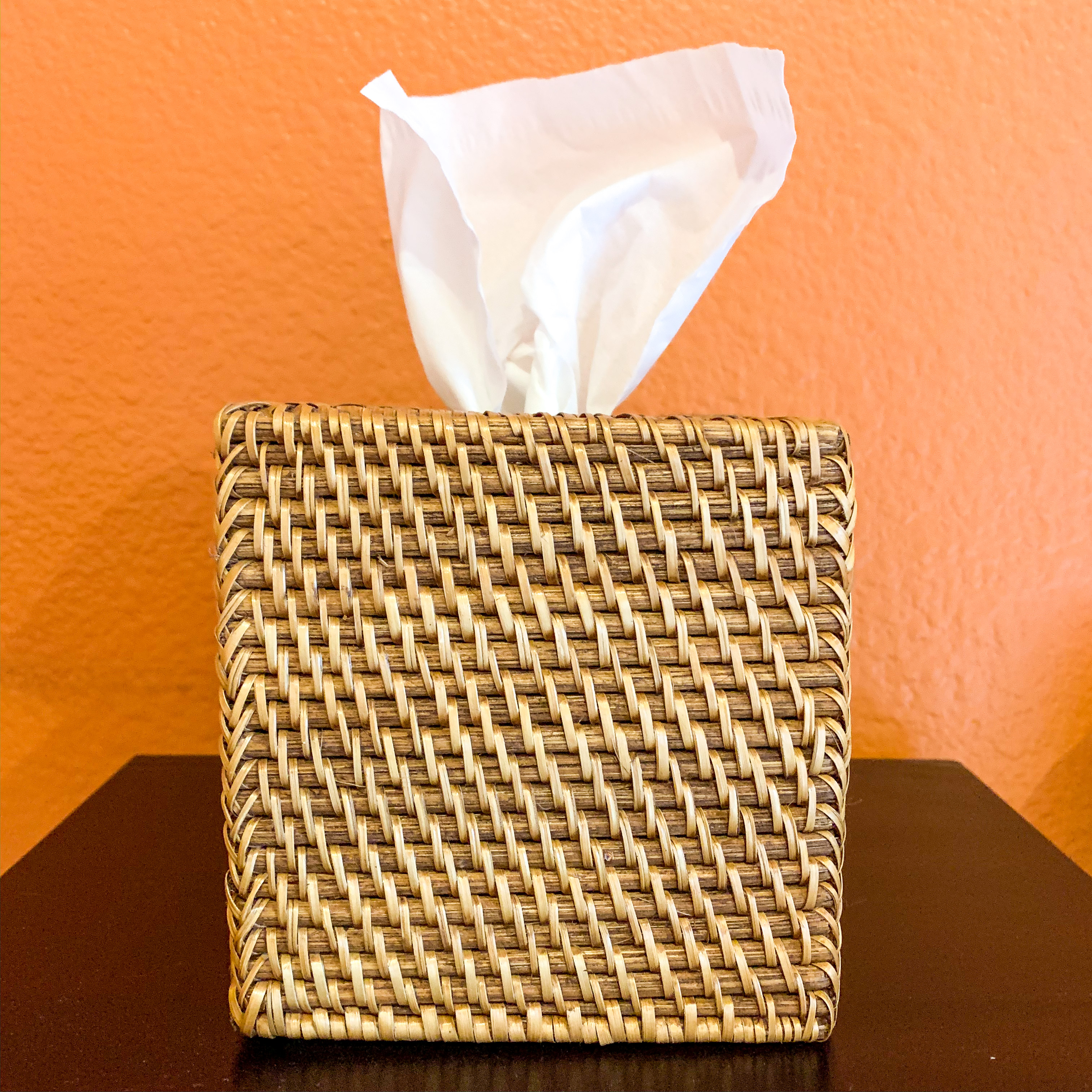This week a patient came to me in tears because she got a cold.
She’d been through a lot in the past year, including surgery and a cancer scare.
Since then, she’d been doing great. She made major diet changes, started exercising, learned to manage her stress better, had emotional reckonings with her family, and more.
Then she came down with a sore throat and fever.
Exhausted and crying, she sat across from me and told me she felt like an utter failure.
She’d done a lot of really meaningful, vital work to improve her wellbeing on a deep level.
She didn’t understand how she could get sick if she’d been doing everything right for the past 6 months.
Worse, she blamed herself for coming down with a virus. She said she must have slipped up somewhere for this to happen.
There’s a pervasive myth out there that if we’re good people, doing all the right things, we’re above getting sick, and it’s damaging on a personal and societal level.
On a personal level, we’re blaming something mostly out of our control entirely on ourselves. We can wash our hands, cover our faces, avoid touching people completely, and yet, sometimes, we still get sick.
We turn inward and beat ourselves up over our obviously less-than-perfect execution of self-protective measures.
I see the same mentality in chronic dieters. There’s a pervasive thought that if they do all the right things and eat all the right foods, they’ll lose weight and fulfill their health and wellness dreams.
The reality is that our weight, like catching a virus, is influenced by many variables outside of our control.
On a societal level, we look at the chronically ill through our rugged individualism glasses, thinking that if they had just tried harder they wouldn’t be in that self-created mess.
The reality is that we’re all just a series of uncontrollable circumstances away from a radically upended life. And that is terrifying to think about.
Health is not a moralistic equation.
We are not bad people if we get sick; we didn’t slip up somehow and let our guard down.
And we are not better people if we’re in good health. We’re most likely a bit lucky and better resourced.
“Those deprived economically and living in disadvantaged neighborhoods face a variety of chronic stressors in daily living: They struggle to make ends meet; have few opportunities to achieve positive goals; experience more negative life events such as unemployment, marital disruption, and financial loss; and must deal with discrimination, marginality, isolation, and powerlessness (Baum et al. 1999, Lantz et al. 2005, McEwen 1998). These stresses trigger a host of compulsive behaviors such as overeating, drinking, and smoking.” source
There is a level of personal responsibility about our choices around our health, but that’s only a part of the picture, not the whole equation.
Even decisions seemingly within the realm of personal responsibility are often subconsciously driven by deep patterns of trauma, both experience and inherited, and unearthing them into consciousness takes concerted effort, time, and resources.
I see the personal health choices of my patients as attempts to cope with a challenge they are facing in their lives.
A loved one died and smoking increases.
Stress and overwhelm at work kicks up emotional eating habits.
PTSD is activated and isolation and apathy manifest.
It is vital to understand that these are normal reactions to stress, difficulty, and trauma and you are not a failure for experiencing them or “giving in”.
What we need is more compassion for ourselves around these coping behaviors.
More courage to look past the shame and guilt of participating in something we know isn’t supporting our health to discover what’s really driving our behavior.
More curiosity to look at ourselves with empathy instead of judgment and fear.
More community to help support us in our opportunity to embrace change, if we decide that’s what we want.
When we get sick, we haven’t failed ourselves. In fact, it is a totally normal, natural, and needed part of being human.
The type of illnesses, severity, and causes depend on our unique history and life circumstances.
Getting sick, either acutely or chronically, provides the body and spirit with an opportunity for transformation.
As a naturopathic doctor, I am excited when my patients get sick and worried about those who don’t.
Not because it's better for business, but because it tells me my patients’ immune systems are working. That they are capable and ready to throw off accumulated junk that their body is sick and tired (literally) of holding.
It takes energy and vitality to mount an immune response, to grieve, to change your diet. It’s all hard and uncomfortable, as is the nature of transformation.
Did you know that while the caterpillar is in its chrysalis, it literally turns to goo?
It has a complete and total meltdown before it remakes itself.
Not every health event is a metamorphosis requiring that level of energy, but I’ve seen and experienced enough of them to know that the flavor of change is always present and that great things happen if we engage with the process instead of suppressing and disconnecting from it.
But the dominant medical paradigm we’re embroiled in encourages just that.
Western, or allopathic medicine, treats the body as broken if you have a health condition.
And hey, sometimes you’ve literally broken something or had physical trauma or a life-threatening acute illness. Western medicine shines in these arenas and is an indispensable part of our healthcare system.
The word allopathy means to “treat opposites”.
In practice, this translates to the idea that if you have symptoms, they need to be regulated, squashed, and suppressed.
In reality they are also often flippantly disregarded by many practitioners, especially if you’re a woman.
It’s easy to infer from this philosophy that your body is messed up and has no idea what it’s doing and needs a savior (aka an allopathic doctor) to swoop in and make everything right.
Some internal mechanism has failed and you need to be FIXED. Like a car.
It externalizes and devalues our agency, creating situations like my patient’s breakdown over feeling like she couldn’t adequately care for herself and thus deserved to be punished.
It’s disempowering, frustrating, and fatiguing to think that we could irreparably fall apart any second.
When we live with this disconnection from our bodies, we view their attempts to converse with us through pain, sickness, and other symptoms as misguided.
It’s time to stop fearing our symptoms.
It’s time to stop looking at our bodies as wild, uncontrollable entities that have a will of their own with no relation to us.
The core of naturopathic medicine is based around the principle that the body is fully capable of healing itself and is innately intelligent.
It’s easy to see this happen in real time.
Think about a cut or scrape you had.
You didn’t tell your immune cells to fight off infection or ask your skin cells to regenerate.
Your body did that all by itself with no intervention or direction from you.
It does this all day, every day, in every system, organ, and cell.
If your body is struggling with this natural process, it creates symptoms to call your attention to the issue so you can support it doing its job.
We may not want to listen and we may resent feeling uncomfortable, but that’s a different story.
Sickness or dis-ease is an imbalance in the body, not a fundamentally broken system or a personal failure.
It is an opportunity to listen, grow, and heal more deeply than we could if we ignored ourselves and our needs.
My heart breaks for patients who feel they’ve massively messed up when they get sick or have symptoms.
Their body is just trying to open a line of communication and let them know what it needs.
When we connect with and honor our symptoms instead of disengaging from them, we start to make real, lasting change in our lives.
We become less fearful and more trusting of our bodies.
We gain confidence in our ability to heal because we see it happen before our eyes.
We realize we can emerge from our chrysalis in a different state than before we entered it.
Ideas of perfection and failure are replaced with the knowledge that we are all deeply deserving of health and self-love and that we are totally capable of nurturing both within ourselves and finding our own unique and ever-evolving balance point on the spectrum of health.




